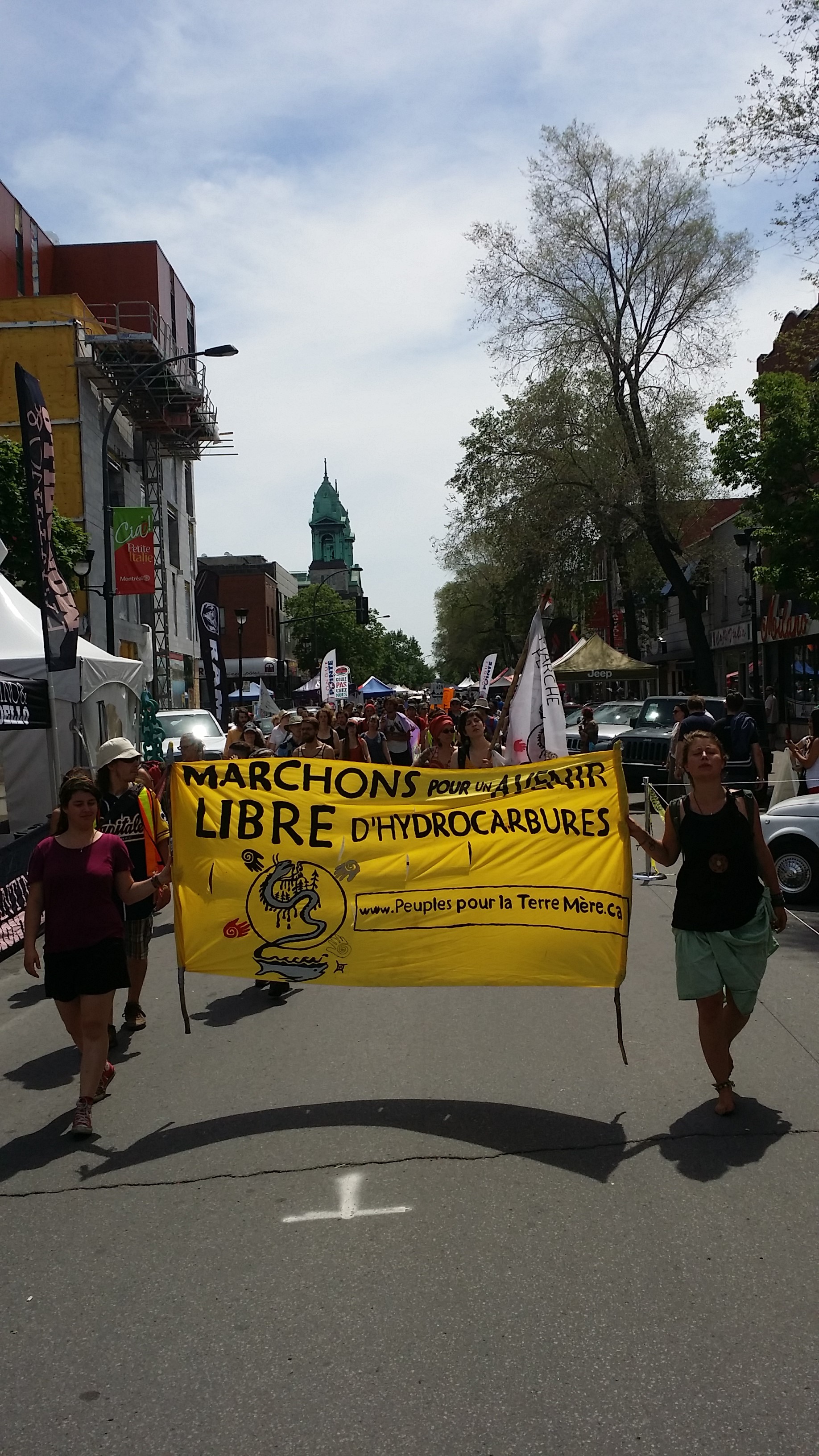On the 8th of June, the Peoples for Mother Earth protest left the city of Montreal and headed north, to Laval. The day was hot, and it was Grand Prix weekend. Downtown Montreal was filled with people. The route that the marchers took out of the city took St-Laurent boulevard, one of the city’s main arteries which had a large section shut down due to Grand Prix festivities.
This was the section of the street walked by the marchers. The road was closed to traffic and filled with pedestrians, people from Montreal and elsewhere who had come out to look at cars and women which are the hallmarks of Grand Prix weekend. Those two elements also spark ire in activists, who see the Grand Prix as being an illustrative symbol of a culture of excess — where women are objectified and planet-wrecking fuel is burned simply for the sake of doing so.
The marchers walked down the street with petitions ready, and found some who were willing to sign it. The marchers sang protest songs and chanted slogans which were not friendly to the Grand Prix. As they passed a booth with speakers set up, an unimpressed DJ turned up the music as loud as possible to drown out the sound. Besides that though, it seemed as though the majority of people were, as usual, sympathetic to the group’s cause.
When the marchers arrived at their destination in Laval, they were greeted by a marching band who had been hiding behind a hedge at the church which was providing a place to sleep for the night. The excited marchers decided to walk around Laval and spread the word about their presence and cause — with success. 75 signatures were gathered in 30 minutes, and some citizens who were spoken to showed up at the march’s press conference later that day.
After the press conference, which was also attended by a member of Laval’s municipal government, the marchers were treated to a speech by Jean Ouimet — ex-head of Quebec’s provincial Green Party. Ouimet discussed his idea of a “citizens’ revolution to respect the limits of the planet,” and how we as a society can reach that stage. This revolution, he said, would have to be based on “shared responsibilities, shared power and shared wealth.” He spoke of the transformative power of localized currencies and the absolute necessity of direct democracy.
Jean Ouimet closed by saying that in order to reach the revolutionary stage, then a raising of social consciousness must be the first step. The marchers were happy to hear it; as spreading of environmental consciousness is one of their main, stated goals. Perhaps the citizens’ revolution is already underway, in its preliminary stages. Time will tell.



